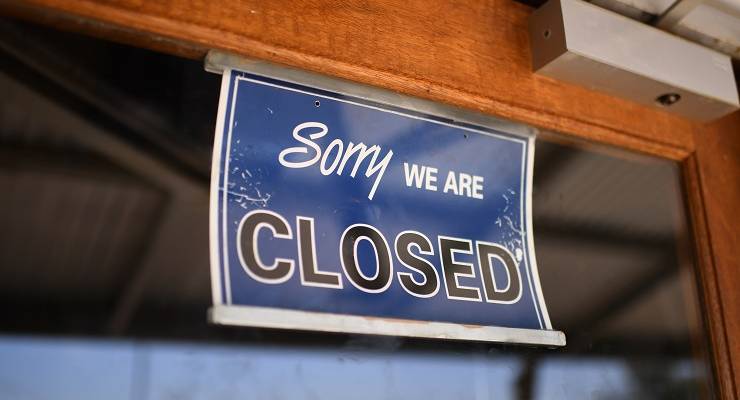
Last year, aged 25, I made a tentative, grown-up dip into the stock market, putting a small, precious bundle of savings into an investing app. It was not much, but still I watched it grow with glee.
As the COVID-19 outbreak escalated and economies tumbled, I hovered my thumb over the withdraw button several times. My partner continued to reassure me: “it will bounce back when this thing is over”. Ever the optimist.
This past couple of weeks, he also reassures himself that he will soon find a job again “when this thing is over”.
The notion that life will “snap back”, as the prime minister might wish, to the way it was once the threat of infection is over is common in my friendship circles. But if the predictions are right, we millennials will never be free of this virus. It will shape and define us for years, maybe our lifetimes.
How we want it to define us is what I have been asking myself as this new world order progresses.
Fifteen days ago, when the first wave of restrictions were announced, I quietly sobbed into my laptop after receiving an email that my journalism internship — a long-awaited stint at the ABC — was cancelled. With so many lives and jobs lost, it feels trivial. But at the time it felt shattering, the robbing of an opportunity which might have landed me a job when I finished my university degree at the end of this year.
The first week of being stuck in my share house had a sense of reprise. It felt spookily similar to another week just a few months earlier, displaced by cataclysm, when I was stuck in my hometown on the New South Wales south coast in the thick smoke and blood red skies of Australia’s black summer.
It’s the same thrumming anxiety, the constant checking of the news for updates, and buying that little bit extra from the supermarket just in case.
Then, childhood friends queued at Mitre 10 for hoses. Now, friends fall into the ranks of thousands lining up, in carefully spaced distances, outside Centrelink offices. Three of my four housemates have lost their jobs. One was due to start a master’s degree in Europe in August. He isn’t sure if he can go anymore.
When you are at the beginning of your career, these small hiccups can feel huge. But there is a reassurance in the small tokens of elbow bumps and dropping homemade treats on friend’s doorsteps that remind me that we are all experiencing our own versions of this crisis. And the setbacks are worth it to protect one another.
The initial distress has settled into a kind of acceptance of the novelty of a life stuck indoors. I am fortunate on that front.
My share house has been concocting elaborate social-distancing-social-plans that rival the sociability and fun of Friday nights spent at gigs or the pub. Last Friday night my lounge room was transformed into the set of the gameshow Spicks and Specks. Across my social media feed, friends were letting their imaginations run wild. Trivia nights dressed as Joe Exotic and Carole Baskin. Dance routines in the skivvies of the first supergroup of our collective memory, The Wiggles. A “bar crawl” where friends turned each room within their house into a different theme. I find I’m kind of loving this social distancing business.
Also shared among friends is how this lockdown has positively impacted the environment. Emissions are down across the world. In places like northern India, where some residents say they can see the snow-capped Himalayas 200 kilometres away for the first time in 30 years, we can see what the world could look like without pollution.
Some of the other aspects of lockdown are harder to deal with. Maintaining some focus on university studies, in the scramble to remote learning and the upending of curriculum to adapt to the new realities, is tough. I’m lucky that my day job — working for a development NGO — is ticking over, bringing in the dollars I need to pay the rent and subsidise unpaid internships and the hours crafting and writing and rewriting stories.
Strangely, working from home has allowed me to get to know my colleagues and my classmates better. Conversations are less transactional. We schedule Skype calls to specifically check in with each other’s welfare.
The expectation that we will “snap back” feels impossible.
In my work I see firsthand the consequences of the inequities of the world. The virus has brought the severity of this into sharper focus. I received an email at work that shared a World Bank report modelling the economic impacts of the outbreak. In its “baseline” scenario, it said the pandemic will cause 24 million fewer people to escape poverty across East Asia and the Pacific in 2020 than would have been the case otherwise.
A few days later I had a call with our Solomon Islands office who are grappling with how to deliver remote learning now that schools have closed. Across radio is the likely scenario.
Closer to home, I read the headline “Australia will never be the same”, followed by an explanation of how the coronavirus crisis is six times worse than the global financial crisis and could leave the nation with a $300 billion deficit, a massive recession and one in 10 workers unemployed. This is my future.
Are my housemates worried? They shrug. Weren’t we already screwed, says one. What with the ballooning HECS debts, being locked out of the housing market, wage stagnation?
These are things I had already pledged to tough out or ignore. After all, hadn’t I chosen to spend $37,000 on a master’s degree in journalism, an industry where everyone declares there are few jobs, but where I still choose to invest my energies and hope because of my passion for sharing people’s stories.
By the time I graduate, at the end of this year, my HECS debt will be around $60,000, or as my mum likes to remind me, “a deposit on a house”.
And so, in the middle of all the carnage and uncertainty of the moment, there is a particular cruelty in watching the media industry whacked by another fury of assaults. The plucky rural newspapers where I might have imagined getting a foot in the door falling victim to the virus, either closing their doors or letting go of staff. And the big guys are not immune either, with the likes of Seven Media cutting wages and hours.
It is confronting to think that the issue of unemployment might compete with action on climate change — what is supposed to be the defining issue of my generation. After the momentum gained around Australia on climate action after the devastation wreaked by the fires, it’s upsetting to see these conversations sidelined.
But I am optimistic the tearing down of the economy might be an opportunity to reassemble it in a greener way. This will decide whether or not the world avoid the worst impacts of climate change. My small bundle of savings are all invested in green initiatives. It’s for this reason that I’ve decided not to withdraw it.
I also have hope that the introspection afforded by the outbreak will create a fairer society now that more people understand how tenuous financial stability is.
Could “this thing being over” result in our “essential” workforce being paid fairly, quash the dole-bludger narrative, doing more for developing countries, and realise the importance of a properly resourced media industry? This is how I hope this crisis defines my generation.
In a call the other day, I told a colleague that after the 1918 Spanish Flu governments introduced paid sick leave. She paused to reflect for a moment, then said: “it might have taken a global pandemic but hopefully some things will be different when this is all over”.
One question: when will that be?









With people like Jordan Beasley looking to their future I feel very confident they will make a better go of respecting this beautiful planet than recent generations. Wonderful article.
Well Jordyn I admire the resilience of you and your sharehouse mates. and you didn’t blame the “Boomers” I am of the not quite boomer generation, (only by a few years) no great wealth, but I am still employed and still contribute to my community. My kids are a bit older than you but not much, they are lucky as they have full time jobs. It makes me angry to see how the neoliberal pseudoconomics has devalued our youth, a few hundred of whom I have taught, at the behest of mongrels who never did an honest (ie morally) job and never produced anything other than debt and financial transactions. No one needed them really, but from which they sucked money for nothing. Like you I hope the present events will result in some rethinking. I also loathe the inequity of the ultrawealthy paying almost no tax while enjoying the benefits that taxes pay for. Good luck young Jordyn
I graduated in 1993 at the end of a recession and it does mark peoples opportunities and expectations for a long time. Some of the smartest people I ever met were pulling beers for a long time until the economy picked up, and now your generation can’t even do that. I can only say that we must make sure that the price being paid economically by the young is not forgotten when the threat to the health of the middle aged and elderly is passed. We need better funding for welfare, for public sector employment, for training and development. We, the economically established older people, will have this bill to pay. It won’t be over for a long time and the idea that we can go back to the comfort zone of economics targeted to voters who don’t plan to have lives beyond 2030 is delusional.